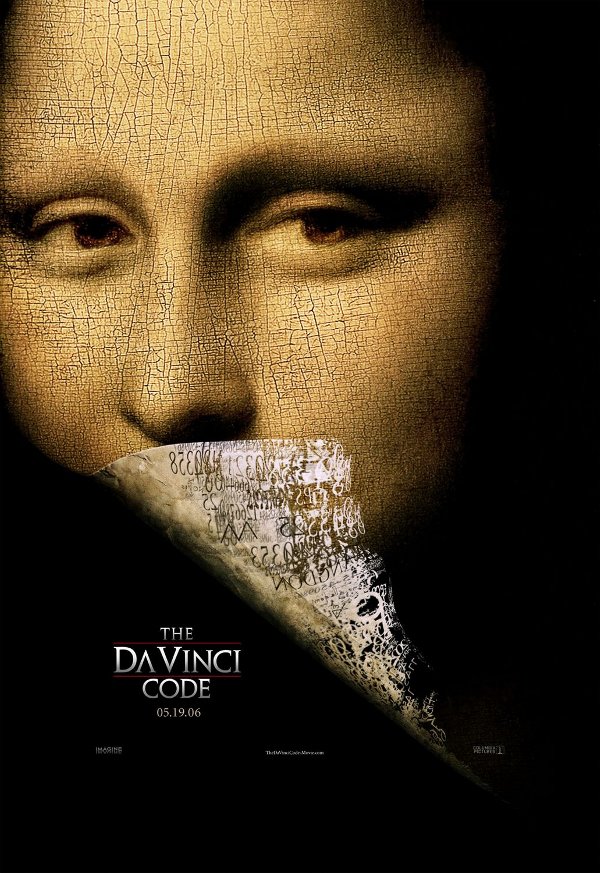- Title: The Da Vinci Code
- IMDb: link

 Ron Howard probably wasn’t the best director for a vast conspiracy/thriller picture; off the top of my head Oliver Stone seems to be the more natural choice. Neither was Akiva Goldsman (I, Robot, A Beautiful Mind) the right man to try and adapt Dan Brown’s novel to screen. The final look of the film feels very much like a book stuffed into a movie. The film really is a confusing jumble of odd choices and missed opportunities.
Ron Howard probably wasn’t the best director for a vast conspiracy/thriller picture; off the top of my head Oliver Stone seems to be the more natural choice. Neither was Akiva Goldsman (I, Robot, A Beautiful Mind) the right man to try and adapt Dan Brown’s novel to screen. The final look of the film feels very much like a book stuffed into a movie. The film really is a confusing jumble of odd choices and missed opportunities.
In case your one of twelve people who hasn’t read the novel the premise runs like this: Scholar Robert Langdon (Tom Hanks) is on a book tour in Paris where he is summoned to the Louvre where a man (Jean_Pierre Marielle) who was scheduled to meet that afternoon has been murdered. Captain Fache (Jean Reno) is certain Langdon is the killer while cryptographer (Audrey Tautou), who is also granddaughter of the murdered man, is certain he is innocent. Neither one of their certainties is satisfactorily explained.
Knowing he was about to die the victim left clues in the museum that lead Robert and Sophie on a quest to find the ancient secret order of the Priory of Scion and their charge – the holy grail. Along the way we are treated to lessons about the history of Christianity, the disciples of Jesus and Mary Magdalene, the Templar Knights, and the crusades. And when the pair enlist the help of Robert’s friend Sir Leigh Teabing (Ian McKellen) the truth about what the grail really is will finally be revealed.
Dan Brown’s novel works, in part, due to it’s length and ability to create many separate storylines and explain their relevance over the course of the novel. In only 149 minutes however a director does not have the same luxury. Still Howard tries to jam as much information, useful or not, into the film with dizzying results. Though the killer Silas’ (Paul Bettany) past is not necessary to the plot of the film it is detailed; nor is the duplicitous nature of the bank president, but it’s here too. A few choices and cuts would have gone a long way to improving the picture.
And despite the film’s fine cast many of the players themselves are slotted into odd roles. Hanks is okay as Langdon but would not be my first choice (or eighth) for the role of the stuffy academic forced into the mystery of the grail. And the word-for-word translation of Silas on screen is more than a little painful to watch.
Still, with it’s problems it is well produced and does find a way to translate the material in a (mostly) enganging way. It’s not horrible; it’s just not that good. The quest for the grail shoud be exciting. (National Treasure, was bears more than a slight similarity to this film, was a much more entertaining film. Read that review here).
The film, like the book, has been attacked for it’s fringe theory that the entire plot revolves around. I won’t give away the secret in case you haven’t read the book. The book takes the time to present it’s case in the form of a lecture which is aceptable on the printed page. Howard’s recreation however brings the film to a grinding halt and doesn’t lead the audience far enough to question whether such a thing could be possible. The “blasphemous” remarks about Christianity should stir some response (anger, disbelief, questioning, or glee) in the audience. So in the end we’re left with an overly-long so-so forgettable film.
Those who haven’t read the book will almost certainly be confused and those who haven’t will struggle with changes (especially the ending) Howard and Goldsman make. The end result comes closest to another Hanks fiasco of an adaption – The Bonfire of the Vanities, where, as in this case as well, no one seemed to make the right choices leaving a mishmash of a film that plays much like a hollowed out and emotionless version of the book.

Comments are closed.